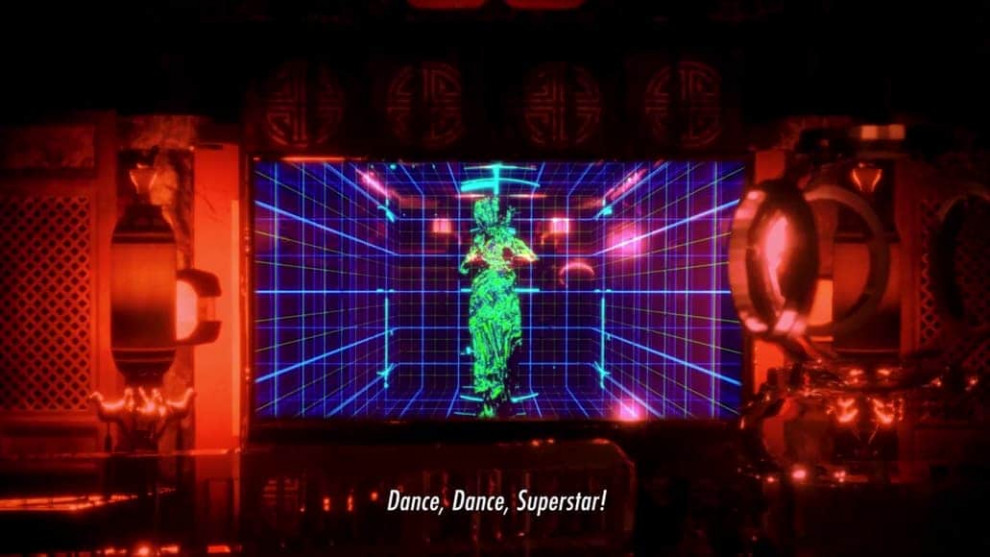Don't expect a cute Pixar movie or a quirky Dreamworks adventure from Lawrence Lek's newest CGI-animated film. To write a review of Lawrence Lek's AIDOL is almost like writing review of an exhibition instead; Lek brings a level of “experimental” into CGI animation that perhaps even Adult Swim would be afraid to tread. But perhaps that's only fair for Lek. First an artist and musician, London-based, Chinese-Malay Lek has long screened his multimedia films and installations within contemporary fine arts venues like the Venice Biennale, the KW Institute for Contemporary Art, Berlin, and renown art institutions across the Eurasia. This time, he screened AIDOL at the Rotterdam as one of the selections of the IFFR Bright Future Main Programme.

For what the plot is worth, AIDOL is about superstar singer Diva's dream to be a legendary artist in the fast-paced, Sino-futuristic virtual world. Diva is thrown a lifeline when she is slated to sing in the half-time show of the 2065 Olympic eSports final. Her task to create a hit is complicated, however, by the temptation to consult an artificial intelligence bot — one of which would guarantee her popularity, but would risk her own originality. Beyond Diva, tensions are running high. The mysterious Deep Blue Monday has wiped out the history of the virtual arena for both the Bios (humans) and the Synths (artificial intelligence); each party believes the other has wiped out the local population prior. The man vs. machine war comes to an all-time high in this CGI universe, as Diva, the Bios, and the Synths all ultimately must make a choice between the truly ethical and the all-consuming desire for fame.
While conceptually intriguing, it's admittedly a hard watch in the cinema. Non-narrative but laden with strobe-lights and autotuned music, Lek's newest work feels like an EDM dance floor captured in 83 minutes. The film is split into ten song tracks, each sung by autotuned voices reminiscent of early, low-grade Vocaloids (Kaito, anyone?) — of which grate against the ears, no matter what language the track is in. The film is also deliberately more evocative than it is narrative, too; landscapes are hard to get a grasp of in this virtual world, and sometimes bots simply shift on-screen without any meaning. Even Diva – a formless, almost Grim Reaper-like avatar that seems to float more than she walks – is hard to follow, as her gray shreds often blends into the maze of color-saturated jungle-temple environs. In other words, the film is full of visual and aural clutter. And even worse, the film embraces it — making it overwhelming to sit through in one sitting.

That doesn't mean the film is without any merit, however. Lek's AIDOL does tempt questions pertaining to protecting humankind against future machine apocalypse, and perhaps even more so the ethics of the human condition. Is it more honest to have AI bound by the same physical stamina standards as humans? Is it more honest to create art without the help of AI? Like PostInternet artist-filmmaker Jon Rafman, Lek's meta-narrative that comments not just on the diagetic virtual world, but also the very legitimacy of computer-generated worlds.
And comparatively, perhaps the theatre venue is more appropriate for AIDOL than it would be in a common video installation. Without the cheap sound-leaking walls of a multi-installation spaces or the opportunity cost of visiting nearby artwork, Lek's film thrives in the soundproof walls of the cinema. As a film-art piece that is more of an immersive experience than a screen-based one, its stimulation overload only works when all eyes and ears are involved. Sitting through the entirety of AIDOL is certainly not for the faint of heart, but perhaps merits at least a few minutes from the intellectually curious. Like “Love, Death, and Robots,” perhaps peeking into the imagined CGI worlds could provide us a glimpse of what the virtual future may bring.
AIDOL is distributed by Lawrence Lek, of whom is currently in partnership with Sadie Coles HQ.














